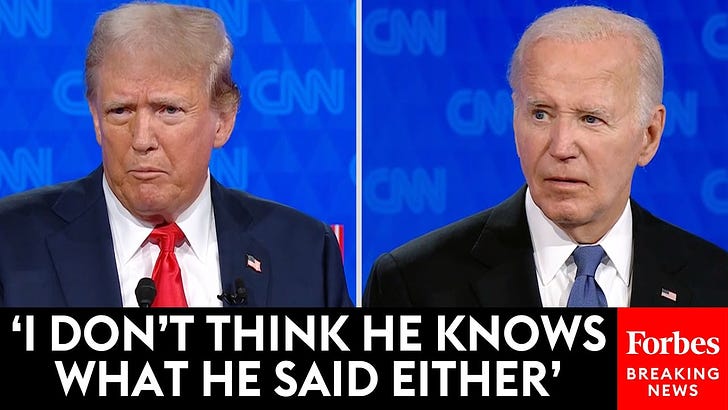If you have already seen enough hot takes about this topic, something that actually deserves more attention this week is the upcoming book The Education Wars, which does something the debate decidedly did not do, and addresses a number of pressing policy and societal issues in a coherent and accessible way. You can read my review and conversation with co-author Jennifer Berkshire by clicking here.
Okay, so about that debate:
[W]e must be able to employ persuasion, just as strict reasoning can be employed, on opposite sides of a question, not in order that we may in practice employ it in both ways (for we must not make people believe what is wrong), but in order that we may see clearly what the facts are, and that, if another man argues unfairly, we on our part may be able to confute him…
Nevertheless, the underlying facts do not lend thems…
Keep reading with a 7-day free trial
Subscribe to Other Duties (as assigned) to keep reading this post and get 7 days of free access to the full post archives.



